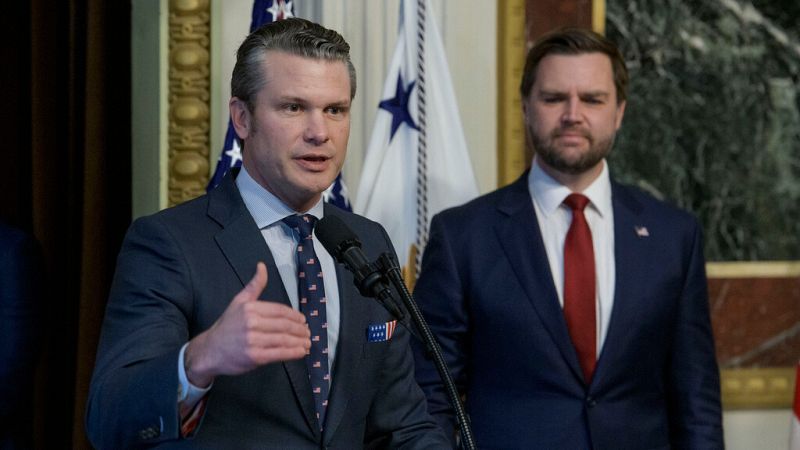
"I completely agree with your disdain for Europe's freeloading behavior. It's pitiful," said US Defense Secretary Pete Hegseth when referring to the continent in what was supposed to be a private group conversation among key members of the Trump administration's national security team.
The conversation — involving U.S. Defense Secretary Pete Hegseth, Vice President JD Vance, Secretary of State Marco Rubio, and Michael Waltz, who was Trump’s national security advisor — was inadvertently shared with the editor-in-chief of The Atlantic after they were mistakenly included in the thread. This individual then proceeded to leak the details of their exchange.
During the conversation, which the U.S. National Security Council indicated as “seemingly genuine,” the team talked about scheduled attacks on Iran-supported Houthi militants in Yemen, actions that began shortly after.
Apart from sensitive details about operations targeting ISIS, the conversation exposed America’s lack of regard for Europe, a sentiment that Vance initially expressed during his address at the Munich Security Conference.
During an unauthorized classified discussion on the Signal app, Vance expressed his disdain for "having to bail out Europe once more," asserting that both the attacks on the Houthis and the resulting reopening of trade routes would primarily advantage European countries.
Three percent of U.S. trade passes through the Suez Canal, and forty percent of European trade goes through it as well. The vice president of the United States pointed out at the beginning of the conversation that there is a genuine danger that the general public might not comprehend this fact or grasp its significance.
“I’m uncertain whether the president realizes how contradictory this is with his current stance on Europe,” Vance went on to say, suggesting that attacks on the Houthis should be postponed for a month.
Further along in the discussion, Waltz pointed out the restricted abilities of the naval forces in Europe.
"The responsibility to reopen these shipping lanes falls upon the United States. In response to the president’s request, we are collaborating with the Department of Defense and the State Department to figure out how to assess the costs involved and impose them on the Europeans," stated Trump's national security advisor.
Hegseth replied, stating, "I completely agree with your disdain for European freeloaders. It's pitiful."
Other officials noted that the U.S. needs to explicitly communicate to both Egypt and Europe what they anticipate receiving as compensation. A Twitter handle purportedly belonging to White House Chief of Staff Steve Miller stated, “Additionally, we must determine how to implement these requirements effectively. Take for instance, if Europe does not provide reimbursement, then what actions will follow?”
'Starting an argument'
At the Munich Security Conference in mid-February, the U.S. vice president initially shocked European leaders by stating that they should fear the "threat from inside." He also sharply criticized the continent’s media censorship regulations.
The EU foreign policy chief, Kaja Kallas, stated that Vance was "attempting to provoke a conflict" with Europe following his remarks in Munich.
"Upon hearing that speech, they attempt to provoke us into conflict, but we do not wish to engage in a dispute with our allies," Kallas stated at the time.
Early in March, Vance stirred up controversy when he referred to the UK and France as "random countries that haven't been involved in a war for 30 or 40 years" regarding their roles in Ukraine's ceasefire talks. This statement came even though these nations had participated alongside the United States in conflicts like those in Afghanistan.
Hegseth’s statements echo other public observations made by the defense secretary regarding how the U.S. disproportionately supports Europe. For instance, he stated in February that Washington “will no longer accept an uneven partnership” with its allies.
Before his re-election to the White House, Trump adopted a hardline approach towards Europe. The U.S. President charged the European Union with exploiting American markets and warned about imposing a 200% tariff on alcoholic beverages produced across the continent as part of the escalating trade conflict.
He has similarly upset European partners by asserting that the U.S. ought to control Greenland, which belongs to Denmark—a country within the EU—and seemingly adopting the Russian narrative regarding Russia’s conflict in Ukraine during an extensively covered disagreement with Ukrainian President Volodymyr Zelenskyy at the Oval Office.

Our website uses cookies to improve your experience. Learn more